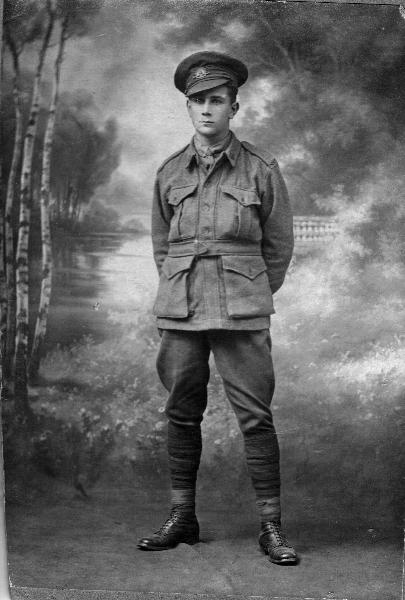By RUSSELL BENNETT
IT’S almost unimaginable – four brothers, all in the prime of their lives, fighting for their country in the Great War.
Cockatoo pioneers, the Cullen family settled in the town in 1903 with a parcel of land opposite the current site of Cockatoo Primary School.
Little more than a decade later, four brothers – Arthur, the oldest, born in 1884, Frederick in 1886, William in 1894 and Alfred in 1898 signed up to serve their country.
Alfred, the baby of the family, unsuccessfully attempted join as an under age 16-year-old. But he would not be dissuaded – joining under an assumed name, and still under age, on his second try.
Arthur, Frederick, and William joined in August and November of 1914 – soon after the war began.
They were part of the 14th Battalion, which completed its training in Egypt and later became part of the 4th Brigade – commanded by then Colonel John Monash.
The first Australian, New Zealand, English and French troops landed in Gallipoli on the morning of 25 April, 1915 at dawn.
The 4th Division, with Arthur, William and Frederick, landed that afternoon. Arthur was wounded within a week, Frederick two weeks, and William was also injured.
All three were sent back to Egypt for medical attention.
Once Arthur healed from his head wound, he went back to Gallipoli to fight again – only for dysentery to ultimately end his time there.
Frederick was sent home from his injuries, but that famous never-say-die Cullen spirit saw him join up again. William was discharged, sent home and stayed there.
Arthur and Frederick landed in France in 1916, and Frederick was killed in action on 17 October, 1917.
Alfred landed in France in July of 1917 as part of the battle-hardened 58th Battalion, after joining up as ‘Christopher Patrick Cullen’.
In one of his letters to two of his brothers, believed to be sent on Christmas Day 1917, he says: “I will be pleased when I see the last of Belgium and France, especially the former as it has many of our lads under its soil and amongst them, dear old Fred. The place where he was buried is called Dicklebusch (pronounced Dicky Bush) and is about two miles from Ypres. It has been about the first opportunity I have had to tell you the name of the place as I could not get the letter through”.
Alfred returned with Arthur to Australia in 1919.
In recent years, Cockatoo man Arthur Wintle recounted the horror the young Cullen boys went through on some of the bloodiest battlefields of the war.
“All the boys had pretty hard times in the war,” he said.
“Letters from the boys even describe them hiding in shell holes.”
Mr Wintle, a keen historian, compiled histories on the Cullen brothers from information given to him by the grand-daughter of the oldest brother, Frank, who did not serve.
Frank’s son Patrick later offered some of his grandfather’s thoughts of the Great War.
“He (Frank Sr) hated the whole thing and saw it all as a senseless trade war with fine Australian boys being sent to slaughter thousands of miles away.
“His sons had gone in spite of him – later to admit he was right.”







